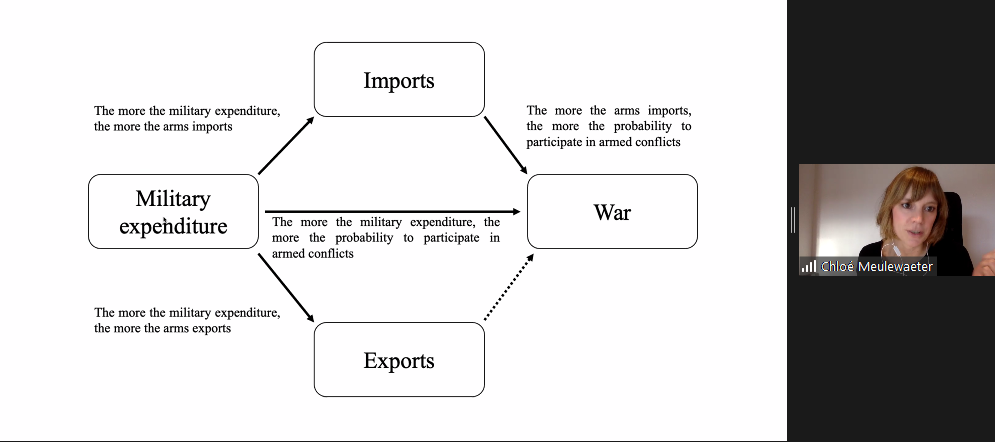Briefing: GCOMS at the World Social Forum
on January 24, our campaign hosted a session on military spending within the World Social Forum, as part of the activities scheduled during the “Peace & War” Day of this year’s online edition.
Panelists:
- Colin Archer (UK), former IPB Secretary‐General and Sean MacBride Peace Prize Winner
- Chloé Meulewaeter (Belgium), GCOMS Consultant and Centre Delàs researcher
- Tori Bateman (USA), American Friends Service Committee
- Quique Sánchez (Spain), GCOMS Officer
You can watch the full session on YouTube.
Colin Archer, as one of the founders of the GCOMS campaign, presented 10 years of GCOMS and the history of activism to reduce military spending. Archer gave a quick overview on the idea of military spending. If we take a look at history, there was several periods of reflexion: before WW1, we had a focus on the “unnecessary spending on the military”. During the Cold War and the Vietnam War, the idea emerged that the problem was not only concerning nuclear weapons or a particular war but the military industrial complex in general. Finally, at the end of the Cold War, voices from non-aligned countries started to raise, and demanded that military spending be dedicated to development. After 9/11 this became even harder, and military spending started to increase drastically once again.
Colin Archer the moved to the origins of our campaign: in 2011, together with the Institute for Policy Studies (IPS) in Washington, IPB decided to create the Global Day of Action on Military Spending (GDAMS). It began as a single day and it is now a full month. In 2014, GDAMS was incorporated to the GCOMS (Global Campaign on Military Spending).
It is naturally not enough to speak out about military spending, it is crucial to show the opportunity cost in specific sectors, where what we spend on the military could be used in a more effective way: for development or the environment, as we know that the military sector is not very environmentally friendly. Military spending could also be used for humanitarian purposes as it is well known that war generates refugees and migration.
At the end of his presentation, Archer took the opportunity to highlight the challenges we are facing:
- We should build more strongly on the work we have done to reach out to partners in others sectors (e.g. Black Lives Matters, gender equality, human rights). Military spending could take a place within the arguments of organisations.
- The nature of the problem: as a global problem but with very different shapes and different places, we should keep in mind that this work is at the local, national and international level. Each group should develop their campaign on their own way.
Quique Sánchez, a GCOMS project manager in IPB’s office in Barcelona, introduced Chloé Meulewaeter, a Centre Delàs researcher and GCOMS consultant, who talk about “how military spending gets in the way of peace”. The theoretical framework she used to answer this question was “the military economic cycle”.
Drawind from data from her own PhD, Meulewaeter identified certain trends: the highest rate of military spending is associated with an almost 60% probability of participating in one or more armed conflicts, and at the same time without military expenditure, the probability of participating in one or more armed conflicts is zero. It is also true with imports of weapons. If a country imports a large number of arms there is more probabilities it will participate in a conflict. This helps explain, according to her, why global militarization is accelerating so fast.

She concluded her presentation with an staggering figure: $1.92 trillion was the global military expenditure in 2019.
Lastly, Quique Sánchez, introduced the most recent work carried out within GCOMS and the main arguments the campaign is currently using to demand major reductions of military spending.
“Why do we question military spending?” Because of the history lessons we should learn from; because of the misguided security paradigm is based upon; because of its huge opportunity cost, meaning that the money spent by governments in the military could be used more efficiently and provide more security to people if it was allocated to other sectors. We could spend that money to create more jobs, to improve our medical care, to invest in climate change mitigation programmes and renewable energies, to fight global inequality.
To finish his intervention, Quique Sánchez invited the attendees to join the 2021 GDAMS, which will take place from April 10 to May 9.



